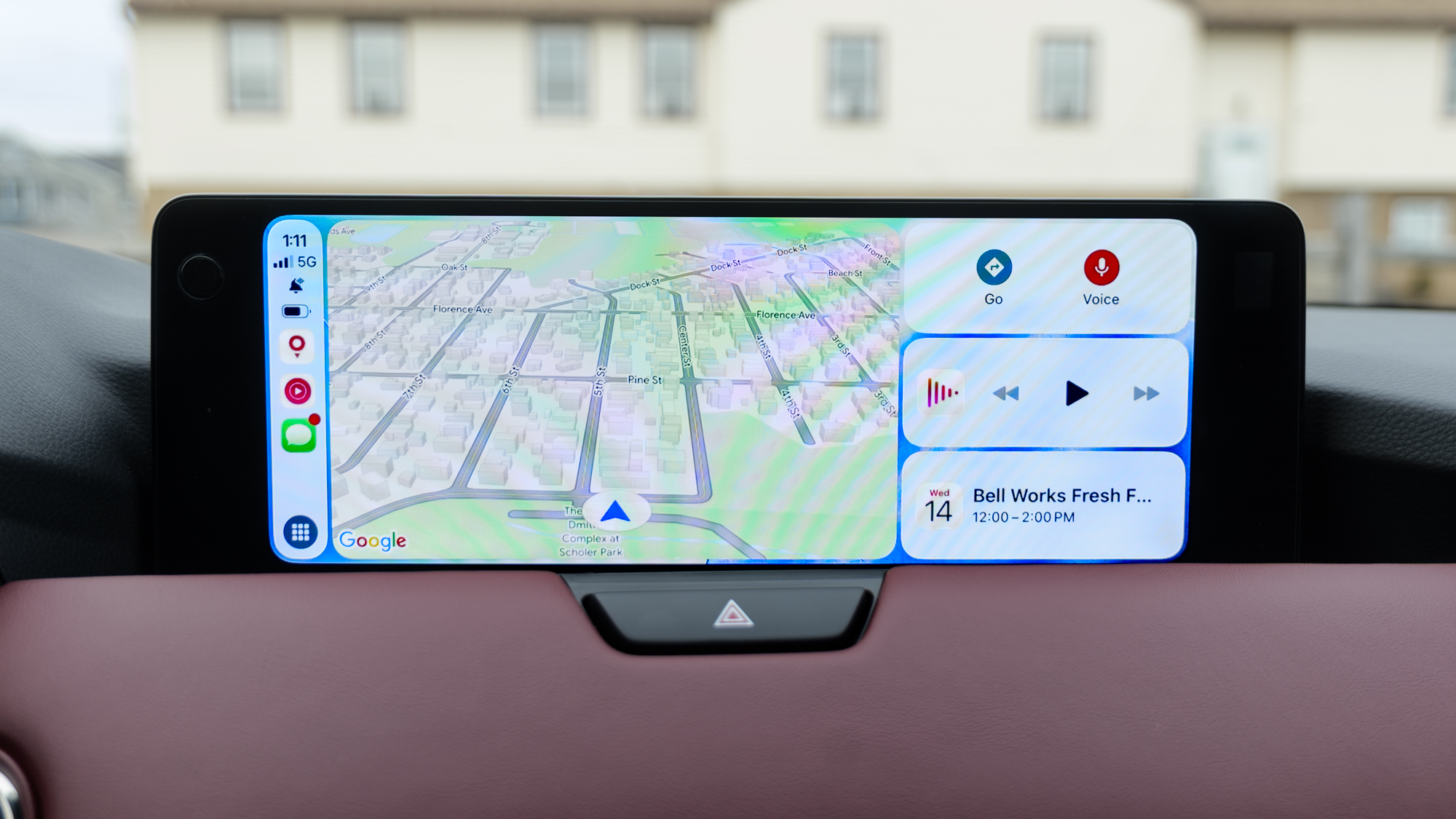How Opera is challenging Google by putting privacy first
I spoke to EVP of Desktop and Gaming, Krystian Kolondra, about Opera's position on privacy
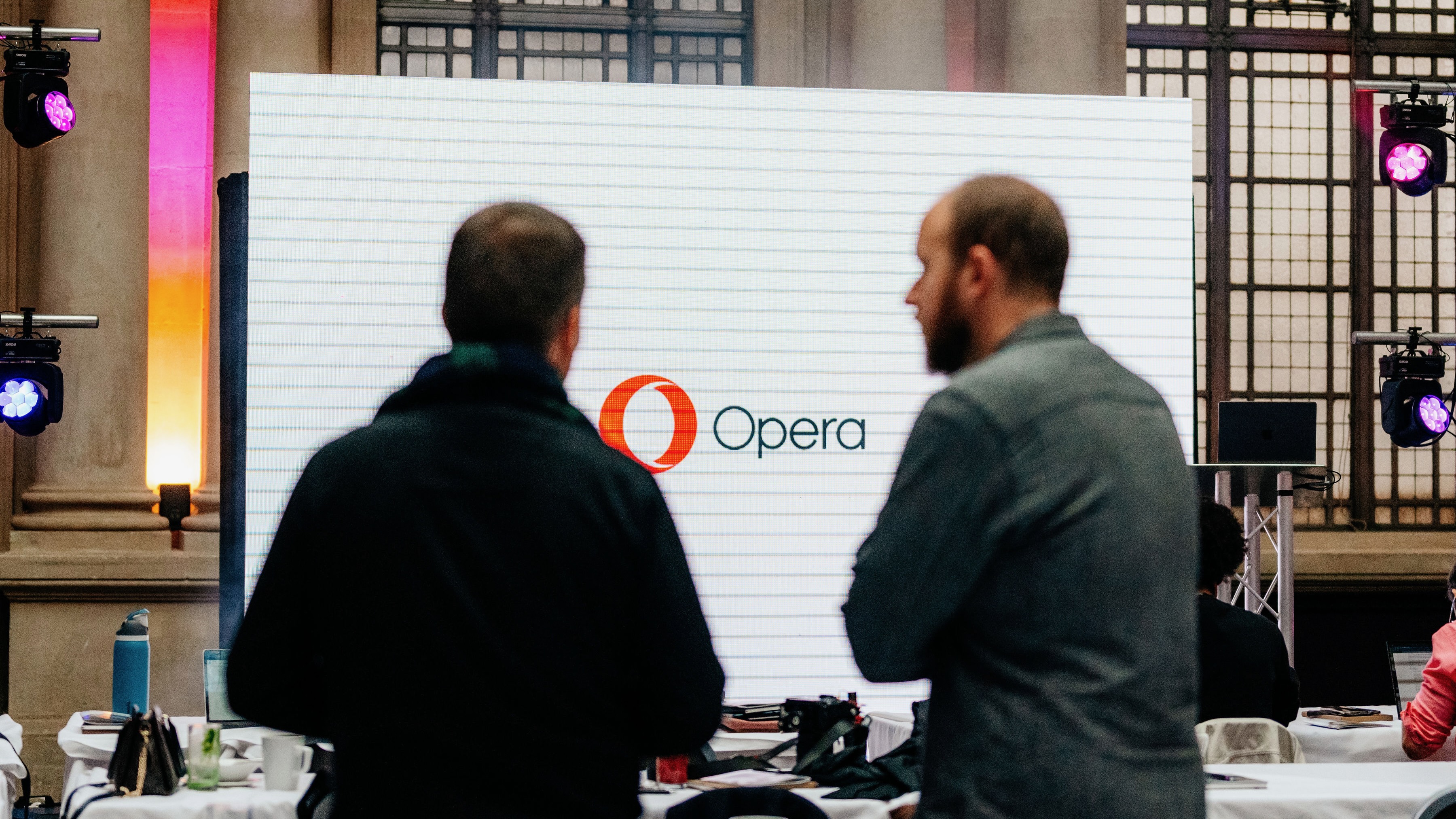
Here at Tom’s Guide our expert editors are committed to bringing you the best news, reviews and guides to help you stay informed and ahead of the curve!
You are now subscribed
Your newsletter sign-up was successful
Want to add more newsletters?

Daily (Mon-Sun)
Tom's Guide Daily
Sign up to get the latest updates on all of your favorite content! From cutting-edge tech news and the hottest streaming buzz to unbeatable deals on the best products and in-depth reviews, we’ve got you covered.

Weekly on Thursday
Tom's AI Guide
Be AI savvy with your weekly newsletter summing up all the biggest AI news you need to know. Plus, analysis from our AI editor and tips on how to use the latest AI tools!

Weekly on Friday
Tom's iGuide
Unlock the vast world of Apple news straight to your inbox. With coverage on everything from exciting product launches to essential software updates, this is your go-to source for the latest updates on all the best Apple content.

Weekly on Monday
Tom's Streaming Guide
Our weekly newsletter is expertly crafted to immerse you in the world of streaming. Stay updated on the latest releases and our top recommendations across your favorite streaming platforms.
Join the club
Get full access to premium articles, exclusive features and a growing list of member rewards.
As VPN Editor at Tom's Guide, I often attend events to seek out the latest privacy innovations, and they're not always just from the developers of the best VPNs.
Very rarely are these held in my hometown of Bristol, UK, but this was the case for the second instalment of Opera's "Browser Days" – a two-day event showcasing its new and improved Opera One R2, and Opera GX.
Armed with some questions about Opera's browser VPN and general privacy practices, I made the (very short) journey to the Harbour Hotel Bristol in the town center to meet the team. I was lucky enough to speak to EVP of Desktop and Gaming, Krystian Kolondra, as well as spend a fascinating day learning about how Opera does things differently to the Big Three.
Privacy at the core
Since its inception, Opera has made pains to put the privacy and security of its users at the heart of its products. Something that the whole team is incredibly proud of is the fact that Opera is not a default browser, and using the software is an active choice.
Opera has no ties to a wider ecosystem of products, and this means that compared to Edge, Safari, and Chrome, there's little that Opera stands to gain from tracking its users – something that can't be said for Microsoft and Google, at the very least.
History is on Opera's side, too. It was the first browser to offer a built-in ad blocker and browser VPN, as well as introducing the now-ubiquitous concept of tabs. If you're interested in learning more about the core features of the browser itself, I highly recommend you head through to my colleague Jason England's piece comparing Google Chrome vs Opera One R2.
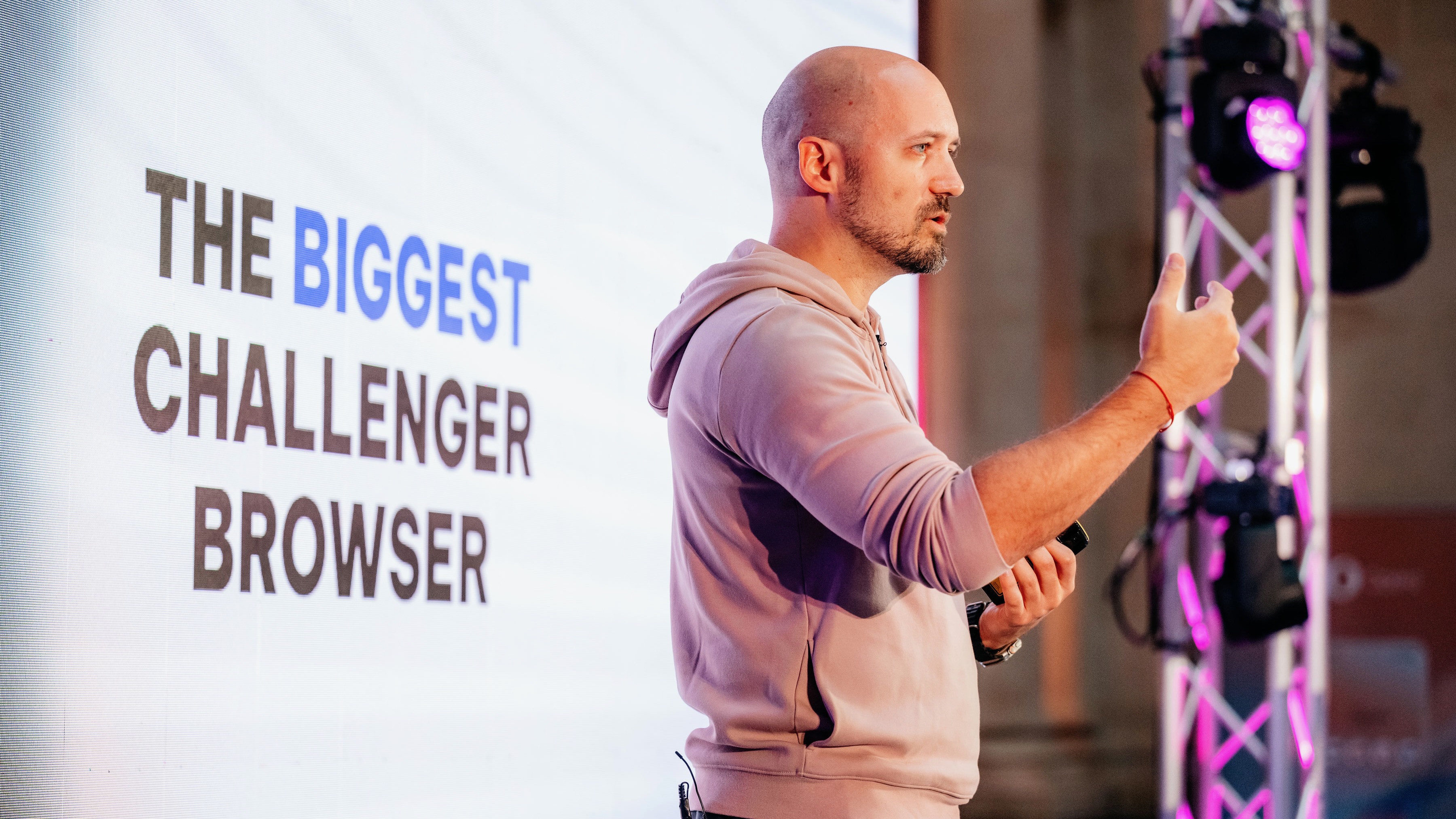
"I've worked at Opera for 18 years," says Krystian. "There has always been a lot of thought about privacy, and a big reason for this is that our employees are also primary users. I know exactly how Opera is built, how it has developed, and I can check the code myself if I want to. In fact, I don't allow my family to use any other browser – and I couldn't bear to use something different myself!
"When it comes to privacy, many things are already regulated, but we are not a service that gathers personal data. We don't know your name, your phone number, what websites you're visiting, anything. We might know what features you're using, but that's it – and that's not useful in terms of exploiting personal data, only for making our product better. From that standpoint, I don't want to say we have an easy job when it comes to privacy, but we're not exactly a bank."
Shout it from the rooftops
Opera has recently had its VPN independently audited, confirming that it is a true no-logs VPN – but according to Krystian, this was largely an exercise in box-ticking rather than anything else.
"It's not really big news for us," says Krystian, nonchalantly. "We got the audit to prove our claims, but we've been no-logging since day one, so nothing has changed in the product. We just thought it might be worthwhile to reassure people that this is really the case."
This is something that I've noticed recently, too: while products may well have always been very secure and respectful of personal data, it's now being brought to the fore as a genuine selling point. This reflects how much more aware people are of how Big Tech abuses personal data, and have a desire to protect themselves.
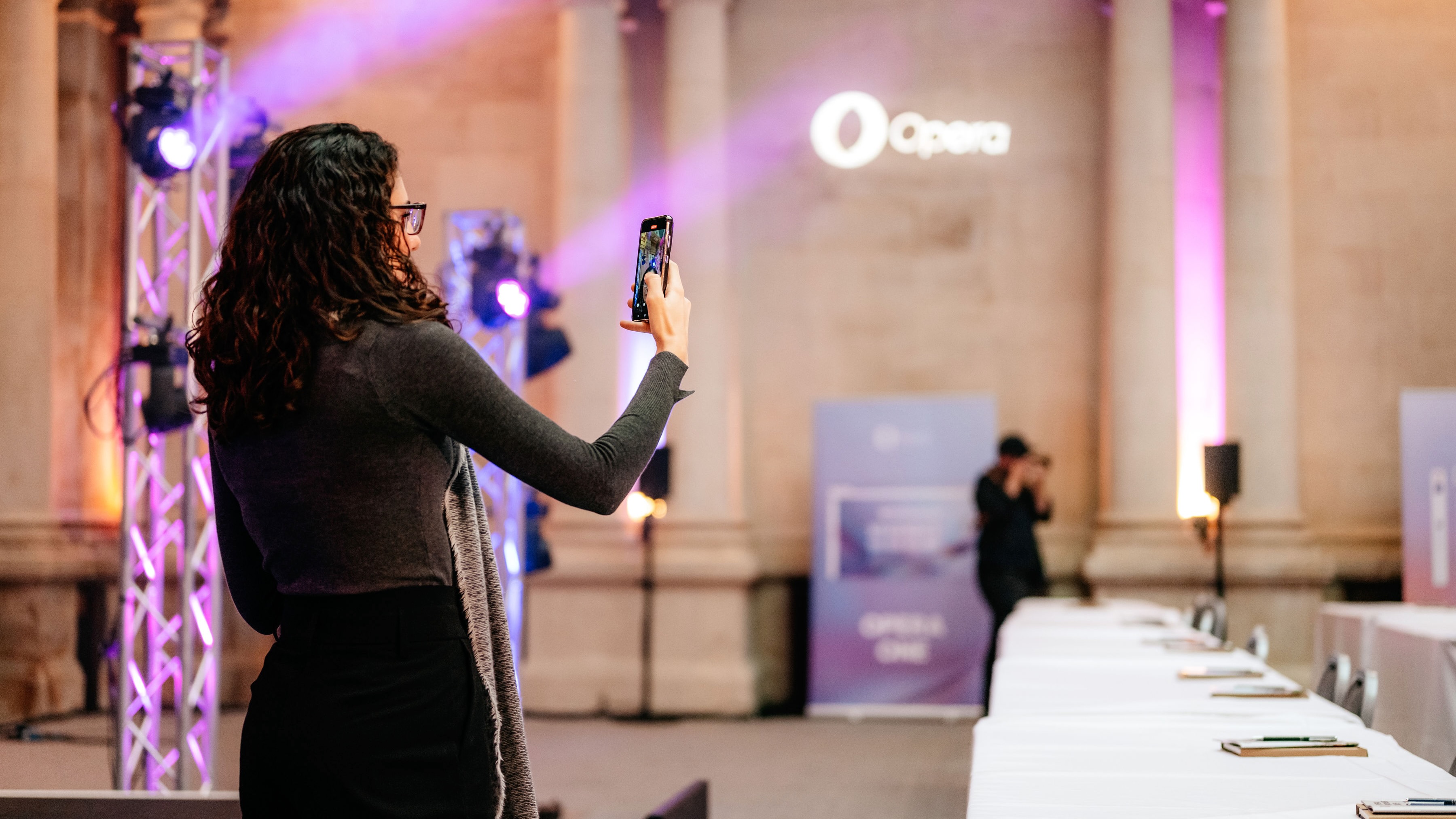
"We're seeing that there is an increased interest in privacy, especially younger people. With Opera GX, for example, we're getting a lot of younger people, and it's just a case of being able to talk more about this."
In fact, Opera limits features in certain jurisdictions to protect the privacy of all its users.
"Our users are all across the world, right? There are some countries that demand to see what our VPN users are doing. In that case, we don't provide our service there because we believe that it's much better to not provide it rather than share our users' data – because of course, law is law. If we don't believe that this is good for users, we simply don't offer a service there."
The cost of being free
Even the best free VPNs have to find a way to cover their costs, and as we all learned from the demise of Atlas VPN in April 2024, even huge companies like Nord Security can struggle here.
A common way of preserving user privacy while still offering a free service is by using the "freemium" model. Providers like PrivadoVPN and Proton VPN both do this – they offer a free service that has all the privacy protections of the paid product, but have restrictions on some features to incentivize you to upgrade.
These limits could include data caps, or perhaps relatively few server locations. Other providers – which I don't recommend in any way – may track your data, or serve you advertisements to keep the lights on.
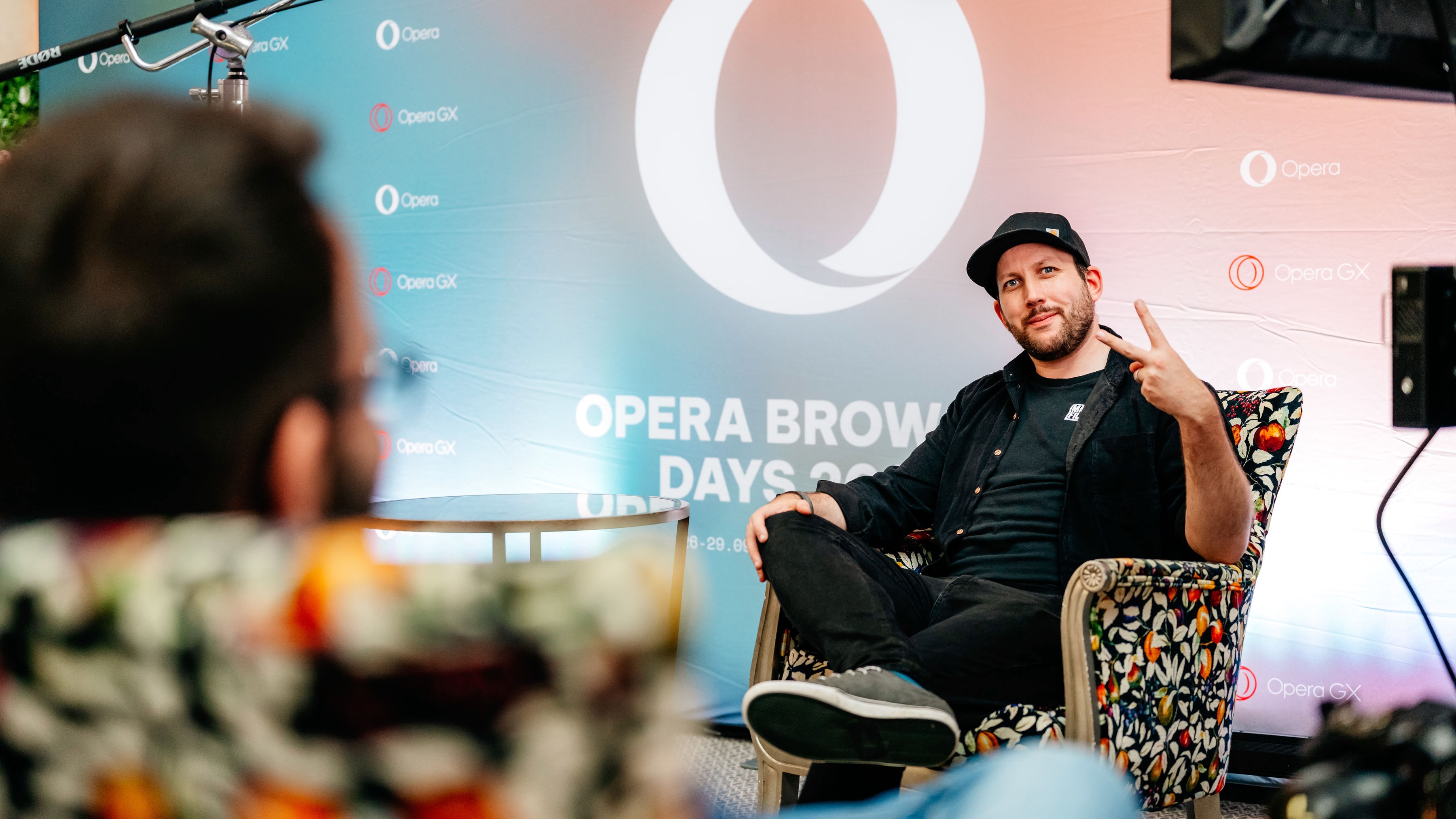
However, while Opera does offer a paid VPN in Opera VPN Pro, it's a niche option that hasn't gained a huge amount of traction. So, how can it continue to offer a free VPN within its browser?
We can use our infrastructure in other ways, and one of these is by building a VPN. We have scale, which means this cost doesn't bother us, and it offers great value for users.
Krystian Kolondra, Opera
"The answer is very simple," says Krystian. "If our only business was VPN, it's true, finding the money to keep a free product alive could be an issue. But our business is not VPN. The VPN is just a feature of the browser.
"Many of the features Opera includes come with either a data center cost or development cost, and we factor this into the whole package. For instance, Opera Mini has large data centers all around the world. and we have enormous connectivity – we can transfer many petabytes of data. But of course, people using Opera Mini aren't spread evenly across the globe. So that means that we have peaks of when we are using this network and we are not.
"We can use this infrastructure in another way, and one of these is by building a VPN. For us, it is a cost, but we have scale, which means this cost doesn't bother us, and it offers great value for users.
"Obviously, for our free VPN, we have to limit it to our own data centers to make sure that we can offer it for free. So, you can only choose maybe, the Americas, Europe, or Asia. With Opera VPN Pro, which you pay for, you can choose from tons of countries."
Bottom line
It's clear that Opera as a whole has its users' privacy at heart, and the "choice factor" plays into this in a big way. Really, Opera wants nothing to do with your private data, and the side-effect is that it's an excellent choice if you're looking to stay safer online, away from the prying eyes of goliaths like Google and Microsoft.
Seeing as many of us spend our entire time online within a browser, it seems like a good place to start.
We test and review VPN services in the context of legal recreational uses. For example:
1. Accessing a service from another country (subject to the terms and conditions of that service).
2. Protecting your online security and strengthening your online privacy when abroad.
We do not support or condone the illegal or malicious use of VPN services. Consuming pirated content that is paid-for is neither endorsed nor approved by Future Publishing.
Get instant access to breaking news, the hottest reviews, great deals and helpful tips.

Mo has been rigorously testing, reviewing, and analyzing VPN services at Tom’s Guide for more than five years. He heads up the three-person Tom's Guide VPN team, and is passionate about accessibility: he believes that online privacy should be an option that’s available to everyone. NordVPN and ExpressVPN are the products he uses most on a daily basis, but he experiments weekly with all the top services, evaluating their privacy features, connection speeds across various protocols, and server reliability – among other things – so that he can make confident VPN recommendations that are backed by data. To see his latest advice, head over to Tom’s Guide’s best VPN and best free VPN guides.
 Club Benefits
Club Benefits










